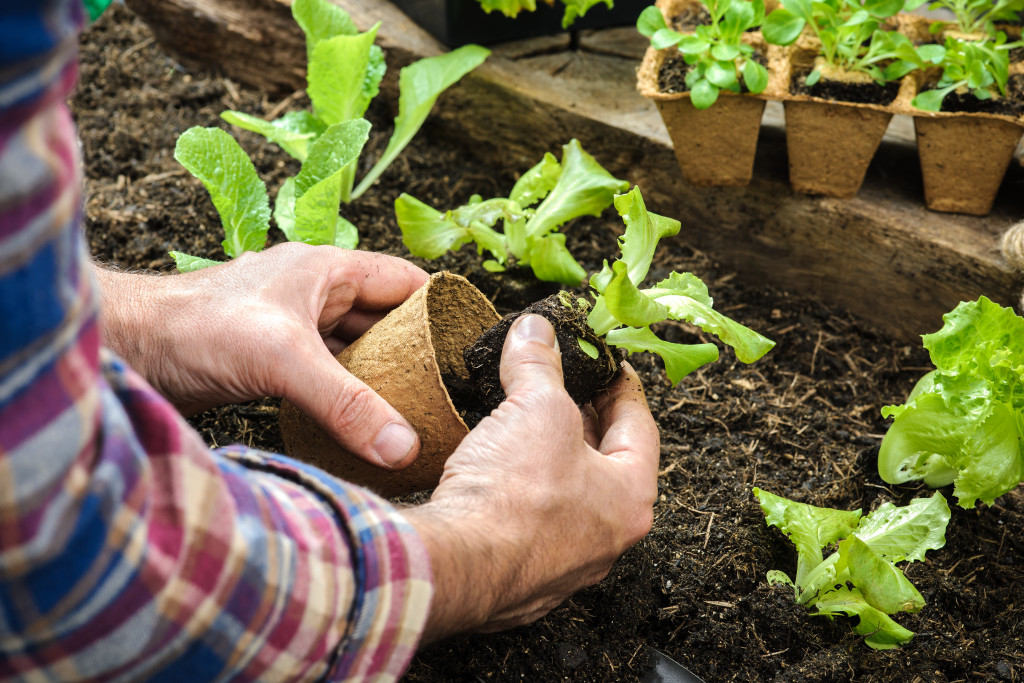In recent years, there has been an increased focus on sustainability and eco-friendly practices across all industries. The farming industry is no different; in fact, sustainable farm businesses are becoming more and more popular.
But what does it mean to run a sustainable farm, and what are some of the most common sustainable farm business models? Keep reading to find ways to practice sustainability in this increasingly important industry.
Ditch harmful chemicals and pesticides.
One way to make your farm more sustainable is to ditch harmful chemicals and pesticides. These chemicals can pollute the environment and contaminate waterways. Thus, it is essential to choose certified organic products that reduce or eliminate the use of pesticides and synthetic fertilizers.
You can opt for natural alternatives or Integrated Pest Management (IPM) practices. IPM is a sustainable approach to pest management that uses a combination of techniques, such as biological control, habitat manipulation, and cultural control. Another option is companion planting, which uses beneficial insects to protect plants from pests.
Whichever approach you choose, it’s essential to reduce the use of toxic chemicals and pesticides as much as possible. By doing so, you can minimize your farm’s environmental impact and contribute to a healthier ecosystem.
Opt for renewable energy sources.
Another way to practice sustainability on your farm is to switch to renewable energy sources. This approach can lower your utility costs and reduce your farm’s carbon footprint.
The best example of a renewable energy source is solar power. Solar panels are becoming increasingly popular on farms because they provide clean, free energy from the sun. It also helps reduce your reliance on fossil fuels. More so, it’s easier to maintain. All you need is to get an aerial drone inspection, and you’re good to go.
You can also switch to other renewable energy sources, such as wind or hydropower. Wind turbines are becoming increasingly popular among farms because it’s a reliable source of renewable energy. Meanwhile, hydropower systems use the power of flowing water to generate electricity.
These renewable energy sources can help you reduce your reliance on fossil fuels and lower your utility costs. Plus, it’s an excellent way to contribute to a cleaner, greener environment.
Reuse and recycle materials.
The materials you use on your farm are essential for sustainable farming. To practice sustainability, you need to ensure that all materials used on the farm are reused and recycled whenever possible.
You can start by reducing the amount of waste you generate in the first place. You can do so by opting for organic materials, such as compost, to replace chemical fertilizers. It’s also best to use mulching techniques or cover crops to reduce soil erosion.
Plus, you can reuse and recycle materials, such as plastic containers, paper bags, burlap sacks, and metal containers. These materials can be used multiple times and help reduce the amount of waste you generate.
By doing these simple steps, you can ensure that your farm runs more sustainably and efficiently. As a result, you can reduce your environmental footprint and help contribute to a greener, healthier world.

Incorporate smart technology.
You can incorporate smart technology into your farm to make it more sustainable. Smart technology can help automate and streamline farming processes, such as irrigation and crop monitoring. This approach can help you reduce water and energy wastage.
You can also use sensor technology to monitor soil moisture levels and adjust irrigation systems accordingly. Doing so can minimize the amount of water to keep your crops healthy, reducing water wastage. It’s a great way to reduce labor costs as well.
Moreover, you can use precision farming to get accurate data about your crops and soil. This practice uses GPS guidance systems, drones, and robots to monitor crop growth and detect pests or diseases.
Using smart technology can help you improve your farm’s efficiency and reduce labor costs and environmental impact. So, it’s a win-win situation in the long run.
Practice ethical farming.
Lastly, to practice sustainability in a farm business, you need to ensure that your farming practices are ethical and responsible. That means ensuring you manage your farm in a way that doesn’t damage the environment or harm wildlife.
You can learn more about ethical farming methods, such as integrated pest management, to ensure that your farm is in harmony with the environment. It would help if you also prioritized biodiversity and animal welfare on your farm, so you can create a healthier and more sustainable ecosystem.
By doing your part to practice sustainability in a farm business, you can make a positive contribution to the environment and protect our planet for future generations.
The above are some ways you can practice sustainability on your farm. However, it’s important to note that sustainability is an ongoing process. You need to stay up to date with new developments in the industry and make changes as needed. But by following these steps, you’re one step closer to creating a more sustainable and efficient farm.








